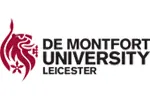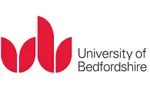Our registered nurse programme for child branch is underpinned by the NMC national educational standards – Future Nurse Standards of Proficiency for Registered Nurses (2018). Our dynamic curriculum ensures you will qualify with knowledge and skills to deliver safe and effective care, which is responsive to the changing climate in children and young people’s nursing.
Children’s nurses play an integral role in acute and community healthcare settings. As such we work closely with our practice partners to offer a breadth and depth of placements throughout the programme. We encourage you to challenge yourself, completing a variety of assessments to demonstrate theoretical knowledge and practical skills. You will develop expert communication skills, an understanding of cognitive development and how this influence both childhood perception of illness and care delivery.
You need to be highly motivated, engaging and have a caring approach. If you want to be a part of the journey that shapes and positively influences the health of our future generations, apply to be a children’s nurse with us.
Key features
- The programme is accredited by the Nursing and Midwifery Council (NMC) and delivered in collaboration with our local NHS trusts.
- Academics bring expertise across a multitude of acute, community and specialist settings enabling us to deliver high-quality professional education to our diverse student cohorts.
- Graduates are eligible to apply for NMC registration, and registered nurses can start on a salary of £27,055 (NHS pay scales 2022/23).
- Study in our newly renovated facilities which comprise of simulated clinical settings and the latest teaching technology allowing you to practice your nursing skills in a safe and supportive environment.
- Our strong links with local NHS trusts, private healthcare providers and charity organisations allow our students to gain practical experience in a range of placement settings throughout all three years of the course.
- DMU students can gain valuable international experience as part of their studies with the DMU Global programme. Our students have previously supported healthcare programmes in Peru, improved the health of communities in India and examined the social and health inequalities faced by specific populations in the US.



